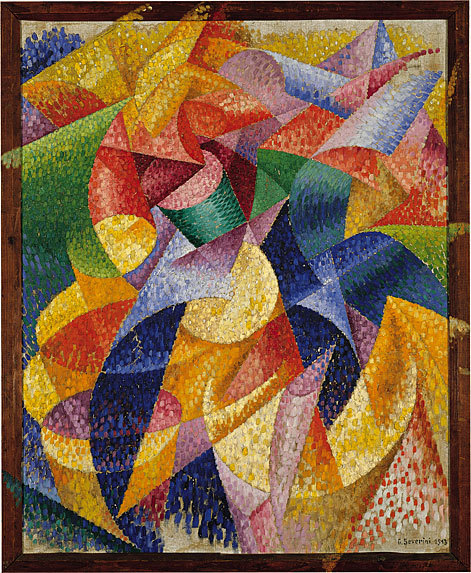
Half of the people can be part right all of the time,
Some of the people can be all right part of the time,
But all of the people can't be right all of the time.
I think Abraham Lincoln said that.
"I'll let you be in my dreams if I can be in yours."
I said that.
Bob Dylan, "Talkin' World War III Blues"
The other day a new patient referred to the "psychopharmacologist" he used to see in the major metropolis he used to call home. It occurred to me that just as the Moliere character learned that all along he had been speaking in prose, for the past year I have been functioning as a psychopharmacologist, although without the presumably higher fees that that slightly pretentious title might attract. It does sound better than medication manager.
In this role I do not, if only for my own sanity, regard people as merely bundles of symptoms or diagnoses; I do my best to understand them as whole individuals, with the often brute realities of medical morbidity, economic desperation, social chaos, and family dysfunction that generally color their lives far more than any psychological subtleties do. But in the clinics where I work, almost all patients are required to have either a psychotherapist or a case manager in addition to medication visits, so tending to compartmentalize like humans do, they soon associate me with an important but very circumscribed role.
Why have I drifted away from psychotherapy, apart from the inertia of now well-recognized market forces? I think a recent Psychology Today post by Michael Bader, D. M. H., provoked by the already notorious Daphne Merkin article in the Times, helps to explain why. A self-described psychoanalyst, Bader dissents from what he views as the insular, navel-gazing propensities of organized psychoanalysis. His piece should be read firsthand, but basically, he accuses psychoanalysis of emphasizing the often endless exploration of theory and nuance while neglecting practical measures that may relieve suffering.
I took Bader's argument to be directed not only at psychoanalysis per se, but at any open-ended psychotherapy that valorizes ambiguity and self-knowledge over any specific notions of outcome as conventionally considered. The natural rejoinder to this is that Bader has erected a straw man, that any good psychoanalyst will include pragmatism in a sensible course of treatment, and that only a tiny minority practice in the purblind, cloistered Manhattan fashion described in Merkin's article. I would be curious to hear the reactions of any therapist readers (and you know who you are).
Even though I have never had formal psychoanalytic training (although I have been widely exposed to its tradition and rationale) and do not currently practice psychotherapy, I felt a guilty twinge of recognition, for the kind of infinitely curious investigation of uncertainty that Bader assails is exactly the kind of process that I find interesting, and the deeper and the more ambiguous the better. Give me understanding over mere symptom relief any day. However, it seems to me that that sort of depth psychology has been threatened less by medications than by competing therapy models (and perhaps by changes in sensibility characterizing the culture at large).
The view from here is that psychotherapy is ever more associated with time-limited, evidence-based, measurable cognitive and behavioral procedures. I am the first to say that these pursuits help many people, and I support them absolutely. Look at the self-help aisle--the majority of folks seek basic recipes for meaning and contentment in life. The trouble is that from a practitioner's standpoint, I have no interest whatsover in the simple, sunny platitudes of cognitive-behavioral therapy, the well-worn ruts of the seven secrets of highly effective people or whatever.
If or when I do set up my own practice eventually, any psychotherapy I would undertake would be openly in disregard of any simplistic symptomatic outcomes, and indeed would not profess to "treat" any DSM mental disorder. The impractical is merely another name for that which is worth doing for its own sake. Who am I? How to live? What to do? These are the questions I find interesting in psychotherapy. That is not to say that one should self-indulgently wrap oneself in a cocoon of existential stupor. Proximate measures of well-being underlie higher-order inquiries. Eat well, sleep well, exercise. But these things are common sense. I am intrigued by those things that aren't common sense.
Daphne Merkin may have been unfair to those analysts. They offered her profound experiences of self-exploration; what she was seeking was symptomatic improvement. Those contrasting expectations should have been made clear. Psychoanalysis above all treats...a hunger for psychoanalysis and all that it entails, and there is nothing whatsoever wrong with that. Any person's suitability for psychoanalysis depends far more upon intellectual disposition (i.e. faith and steadfastness in the process) than upon diagnosis.
If or when I return to providing psychotherapy, it will be based on unpredictable contingency, much as life is. Yes, a therapist must have expertise, a certain self-awareness and wisdom, including firm boundaries, but beyond that the endeavor floats on a sea of uncertainty. I do share Freud's tragic view of life. Short of that, I will continue to work on biological modification of the brain, the means of which I will tackle next post.











